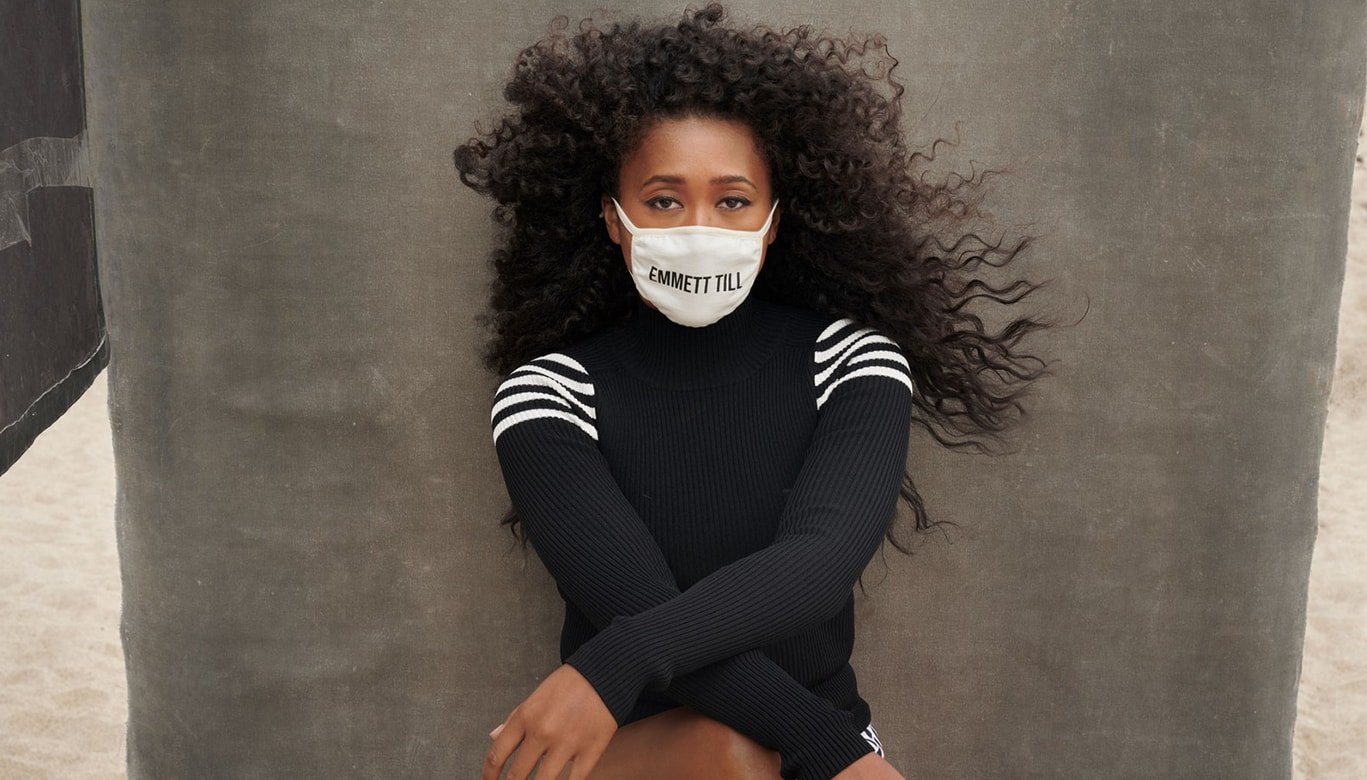
Vogue Values 2021: Naomi Osaka
Vogue Magazine has selected 4 cover stars for their “Vogue Values 2021” January edition of the magazine based on the 4 stars’ individuality, creativity, inclusivity, independence of spirit, and leadership. The stars that Vogue chose for this series suggest some “thrilling changes” that they expect to be brought in as we zoom into the coming new year. They started with Frances McDormand and then interviewed Naomi Osaka, a 23 year old Japanese tennis professional known for being ranked World No. 1 by the Women’s Tennis Association, an internationally recognized tennis authority. She is also a three-time Grand Slam Singles Champion and the winner of the 2020 US Open. Her interview was written by Vogue contributing writer Rob Haskell.
Naomi Osaka was born to a multi-ethnic couple, a Japanese mother and a Haitian father, as the second and youngest daughter in her family. Osaka took her mother’s last name according to Japanese law to ensure she would be included in the family registry. At age 3, her family moved from Osaka, Japan to Valley Stream, New York where the four would then live with her father’s parents. Upon settling, her father began teaching Naomi and older sister Mari the basics of tennis following Richard Willliams’ training for his own daughters, Serena and Venus. By 2006, they moved to Florida for better training opportunities where she started with the Pembroke Pines public courts and moved her way up to the ProWorld Tennis Academy over time. She had a dual nationality of the USA and Japan, but by 2019, she dropped her American one so that she could compete in the 2020 Tokyo Olympics.
Upon their first meeting at the tennis star’s Beverly Hills home, Vogue’s Rob Haskell and Naomi Osaka ponder over the famous tennis battle cry: a fist pump coupled with “Come on!” Osaka recalls being embarrassed by the battle cry and hating the attention it would bring towards her from the audience.
At the time when this interview was first taken, the 2020 French Open was in session. Haskell and Osaka discuss the way the pandemic affected pro tennis this year – while some took it easier on themselves, others plunged headfirst into sports. Osaka sat out the FO 2020 but she won the U.S. Open this year again! In fact, Osaka says of the gaps, “I think that the pandemic gave me the chance to go into the real world and do things that I wouldn’t have done without it,” likely referring to the way she was able to actively stand up against racial injustice as a Black Asian woman after the multiple racial inequality incidents that began appearing in the news since June 2020. Her usage of her social media increased during this summer too. The fact that there was nowhere to go due to the pandemic led her into turning her attention towards the racial injustices taking place all over the USA as “there were no distractions… I was forced to look.” She even joined the rallies as what Haskell calls “tennis’s most powerful advocate for racial justice”, but when she posted about the rallies and spoke out as a Black woman, she received mixed feedback from fans and critics wondering if she too would “loot everything”.
It is her multiracial and multinational heritage that constantly helps her be a fitting ambassador for her numerous sponsors when people continue to push her into one of the many facets of herself she represents: a female Black tennis professional with American, Japanese, and Haitian roots. She believes that people are unable to give her any one label and that confuses them because they only expect her to talk about one of the topics from one of those “labels”, but she continues to speak up about issues that matter to her from any part of her life.
Osaka also talks about being intimidated by Serena Williams and about knowing that she wouldn’t be where she is in life without the Williams sisters and their father’s training. In fact, she has to tell herself that Williams is merely another tennis player and that she just has to play every ball that comes her way to keep herself focused on winning and not getting starstruck by Williams. She then goes on to talk about how her older sister Mari, also a tennis professional, was her only friend growing up, and even now she is by herself whenever doing anything casual – she labels herself a “homebody” and says her rapper boyfriend Cordae Dunston is an “even bigger homebody” than her. Comparatively, she loves the rumble of a large stadium but starts shaking if she ever has to speak in front of a crowd.
You can find the full article here to continue reading about Osaka’s dip in ranking and how she pulled herself out from the funk she fell into afterwards. Let us know who else you would like to read about here or in the comments.
Credit: Annie Leibovitz/Vogue Jan 2021


